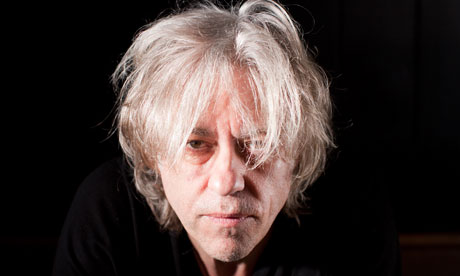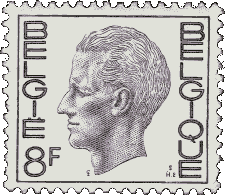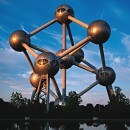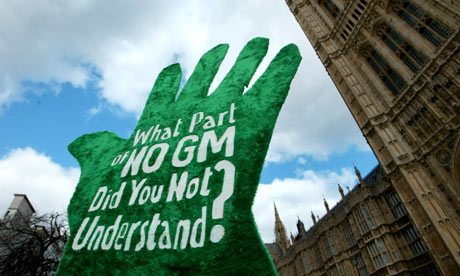The Saturday interview: Bob Geldof
Contrary yet warm, world-famous yet unable to get a gig in the UK, Bob Geldof will always be remembered as the musician who tried to feed the world

It is impossible to read even a fraction of the words that have been written about Bob Geldof without being struck by just how struck everyone else is by his swearing. Of course, he does swear, but not really that much – more striking, it turns out, is his sheer contrariness. Perhaps it is because he is talking to a journalist, and he has a well-documented (and sometimes justified) antagonism toward journalists, but I think, somehow, it goes deeper than that, and is a way of being: every other answer begins with sharp no – even when the rest of the answer is an elaboration or, occasionally, outright agreement.
So a typical exchange goes like this: "There's quite an emphasis on the word sober in the last track on your album [a pastiche of an Irish ballad]. Those songs are often drinking songs, aren't they?" "No. Not at all. By sober I mean steady. Focused. Literally, it's that. You're a journalist. You should understand the language." "I do. But the word has other meanings too. Why such an emphasis?" "There isn't!" "It's in every stanza!" (and in the one stanza it's not in, the word "sober" is replaced by the word "drunk") "No. Sober means that I'm focused, and you know – it's just a trope that occurs in these types of ballads. I mean, the fact that I say 'the Lord settled on my shoulder' is meaningless outside the Irish type of song. I'm not religious at all. Clearly the lord doesn't actually sit on your shoulder – so sober doesn't mean you're a drunk."
And yet he also comes across as gruffly enthusiastic, warm even: having established his refusal to be co-opted into anyone else's agenda, he proceeds to try to be as honest as he can. The album he is currently promoting, for instance, is called How to Compose Popular Songs That Will Sell, and he is direct about why it is so different from his last solo effort, Sex, Age and Death, which was written in the aftermath of being left, after 19 years, by Paula Yates, the mother of his three daughters. The man she left him for, Michael Hutchence of the band INXS, hanged himself, and she died of an accidental heroin overdose nearly three years later. It was written, then, out of "amorphous pain … your head is just filled with a universe of pain, stuffed with it, so you just sit there because it's so difficult to understand where the limits of this thing are".
Sat at a scrubbed wooden table in a gastropub near his home in Battersea, south London, with that wild, grey hair, he goes on: "I couldn't see beauty, I couldn't see desire – I had no desire. The great English word is unmanned." But in that state he met Jeanne Marine, his current partner, at a dinner in Paris, and she "insisted upon loving me. And that insistence ultimately gets reciprocated – it can't not. And so you stitch a human being back together again, by doing something to its soul. And so at the very late age of 58 and a half I discovered that John Lennon probably did get it right – love is probably all you need."
One of his new songs, To Live in Love, actually begins: "To live in love/ Is all there is/ Life without love/ Is meaningless," and proceeds in a similar vein. Wasn't he worried that happiness, to coin a cliche, writes white? That these sentiments merely come across as banal? A rare agreement, and sudden, direct eye contact. "Now, yes – because unfortunately we live in a postmodern world where certain essential words of the vocabulary have to be put in quotation marks. One of those would be 'charity' – so DJs have to say 'charidee'" – he chews up the word, scathingly – "one of those would be 'love', so they have to say 'luurrve' – because you can't say it – it's almost too embarrassing. But I don't find them difficult to say."
His real problem, however, is, "you know that John Lennon song – Julia, on the White album? He says, 'When I cannot sing my heart, I can only speak my mind'. My problem is exactly the reverse. I can speak my mind anywhere. I can make speeches, I can do politics, I can write for the Guardian, for the Economist, Der Spiegel, whatever. That's not a problem for me. It's opinion. That's easy. What I'm not allowed to do, because I do that other stuff, is sing my heart." Critics review him in the context of his aid work, his lucrative business interests (in 2008 his media company Ten Alps, for instance, had revenues of over £80m), his private life, rather than in the context of his 36-year music career ("Still, it's nice that he has a hobby," notes one review of the current album, for example), which "is actually the only thing I enjoy doing, and I do it quite a lot, though you might not be aware of it". Will he tour? "I tour, but overseas. I can't get arrested here, really. The sum of my ambition is to play 2,000-seaters in the UK. I would love to. But it's the old thing of getting past all the stuff, to [people] accepting that maybe he does music – that's a hard ask for an audience to swallow, I guess."
At the same time, and although today he bluntly refuses to discuss the myriad hypocrisies of international aid and the hidden stings in debt relief – "I don't want to conflate it with me trying to flog a record. It's inappropriate" – he doesn't exactly want to get past "the stuff" either, because that would be to deny the good he is trying to do.
So in that bonus track, an autobiography in verse, one stanza goes: "But in the year of '85/ We watched the millions starve and die/ And the Lord perched like a vulture on my shoulder/ So we sent some bread and water/ Tried our best to stop the slaughter/ For we were young and sober." This strikes me, hearing it with its honky-tonk piano accompaniment, as both somewhat flippant, and perhaps a bit self-aggrandising. "It's not flippant. That's exactly what we did. We tried our best to stop the slaughter. The Lord perched like a vulture on my shoulder. Nothing flippant about that."
Live Aid, with its global audiences and its £150m raised, for which Geldof received his honorary knighthood, is part of 20th-century legend. And along with it comes that song, Do They Know It's Christmas? What does he think of that song now? He's plainly tickled by the way it has so thoroughly entered the culture – he remembers some carol singers who sang it outside his house once, three or four years ago: "They thought it went along with Silent Night and O Come All Ye Faithful!" His battered face lights up in delight. But it has taken him 25 years to come to terms with aspects of it. "When I hear it now, at Morrisons when I'm getting my turkey, I'm not really embarrassed. I was – I didn't think it was a very good song. I'm a musician, and from that point of view, 'Oh, god,' you know?"
I grew up in Ethiopia. It's very weird to be on the receiving end of it. "No, I know. It's terrible." But I mean factually. It's majority Christian. Of course we knew it was Christmas. And it's not a place where "nothing ever grows, no rain or rivers flow". "It doesn't fucking matter – stop arguing about it as if it's some fucking art object – argue about it from a musical point of view. It was to stop people dying, it worked. Other than that, fuck off." Yeah, I answer, dubiously, and am about to say that just because they were starving doesn't mean they or their compatriots didn't have pride in their culture, or pride that knows when it has to accept charity but would like a bit of respect to go along with it … but I don't get that far. "Not yes – that's it. There is no other argument. It stopped millions dying. No question. It galvanised politicians to stop it. It generated huge volumes of money, it made sure those people were cared for. Obviously each of the sides in the civil war used it to their own ends, there's no question about that, that would have happened anyway. It's a little record, that's all."
There are serious allegations that Band Aid money may have cut the death toll by between a quarter and a half, but may also have contributed to as many again, because agencies were exploited by a Marxist regime that was pursuing a policy of resettlement in which 600,000 peasants were uprooted from their homes in the north, and another three million forced to live in government–built "villages". The death toll from this alone is estimated as anything from 50,000 to double that. "Well, what's the principle? You abandon the people you're taking care of? So that already stressed agencies have to take up the slack? That's what happened. It was an absolutely disgraceful abdication of their duties. They're either a humanitarian agency. Or. They're. Not. Spare me your moral code, please, and imposing it on the backs of wilting people. No thanks."
The thing is that, for Geldof, music and politics have always intertwined, as he points out in a slightly rambling, gnomic potted history of himself. He discovered rock'n'roll when he was 11, listening to Radio Luxembourg in a cold dark home in Dún Loaghaire, Ireland (his mother died when he was 7 and his father was a travelling salesman who was away a lot); discovery of the blues and anti-apartheid campaigning followed soon after. Songs he wrote, or co-wrote for the Boomtown Rats, his first band, take much of their inspiration from the world then around them: I Don't Like Mondays from a San Diego school shooting, Banana Republic from the general state of Ireland at the time. He saw Michael Buerk's famous report on the Ethiopian famine when the hits seemed to be drying up, and had to be persuaded by Midge Ure that what they were writing could be a hit. And that, of course, was where the "other stuff" began.
These days he still spends at least part of every day dealing with issues arising from lobbying the G8 and the G20; the Band Aid Trust "still has money, which we still grant". He is also starting a private equity company, 8 Miles (the distance, at the closest point, between Africa and Europe), due to raise its first big tranche of money in the next month or so, which he hopes will become one of the biggest private equity investors in Africa. Is this an indication that he's moving away from traditional aid? Has he lost faith in it? "No! I've just said, things have evolved, and the next step is the growth of Africa. You know?"
His longer answer is a typical mix of blithe assumption that the story of Africa to some extent tracks his involvement in it, an oblique reply to the charge that Africans should be treated as equals rather than just recipients of charity, and a display of his still hugely impressive commitment – vision, even. "So, in the 80s you dealt with the symptoms of a single, empirical financial problem, called poverty. The symptoms are hunger, lack of health, lack of education. The structures are, as ever, political and economic. That took 20 years, from Live Aid to Live 8. And then you move on – you have to try as hard as you can to get Gleneagles implemented – the debt issue was carried in the first eight months, and the G8 has done maybe 60%, maybe less, of what was promised. We're still chasing it. Meanwhile, there's another Africa opening up that's entirely part of the new world, and we'd better fucking get hip to it. And the best way I can do it is to illustrate what I mean, and that's by funnelling huge amounts of money into investing in dignity and lives and jobs so that they can construct their own countries, you know? So that's the next and possibly last step that I can contribute to."
How to Compose Popular Songs That Will Sell is out now on Mercury.





